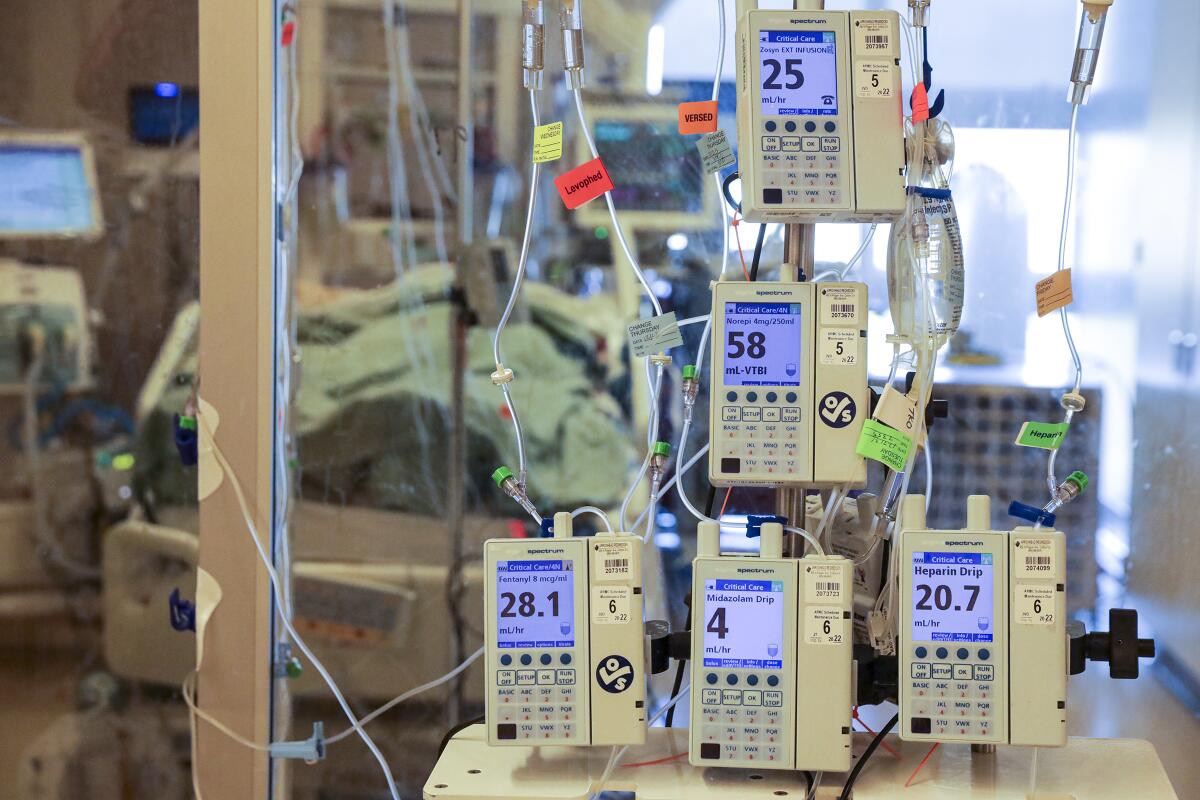Letters to the Editor: How soon should ‘End of Life’ medication be available?

- Share via
To the editor: I am so angry. I am angry that there are always “do-gooders” who who want to use the court system to remove the freedom of individual choice, whether it be in the area of reproductive rights or the right to die. (“He got his ‘End of Life’ medication within 48 hours. Will the option be there for others?” column, Aug. 16)
They seem to think people could be coerced into choosing to end their lives. There are lots of safeguards against this.
Over the last 50 years, modern medicine has lengthened the lives of people who would have died a natural death much earlier. These measures can extend life but can easily result in extreme misery.
I have written before about my 83-year-old husband who, suffering from glioblastoma, had to wait the two additional, horrific weeks after requesting the medication to end his life. “Just do it,” he would beg.
Thanks to the group Compassion and Choices and testimony to lawmakers from people like me, now he would only have had to wait two days.
Needless to say, he gulped that potion down with alacrity and died peacefully.
So just go home, do-gooders. Freedom and choice are the hallmarks of America.
Jane Roberts, Redlands
..
To the editor: Steve Lopez asks, “Will the option [of assisted suicide] be there for others?”
To plaintiffs in the referenced lawsuit and many in the disability, older adult and BIPOC communities, our question is: With assisted suicide on the books, will it be the only “healthcare” to which we have equal access?
It is a privileged, bourgeois set of experiences that frames this issue as choice rather than civil rights, as if everyone in California has equal access to excellent care.
When it’s easier for someone on Medi-Cal with life-threatening disability to get suicide drugs than a mental health consult, and when University of California health systems won’t serve the majority of people of color due to low Medi-Cal reimbursement rates, the state has effectively created a death funnel for devalued groups.
To answer Lopez’s question: Taking one’s own life isn’t criminalized in California, and the right to refuse care is firmly established. This lawsuit doesn’t argue to change either of those things. We simply stand firm on healthcare equity and against a public policy at odds with it.
Matt Vallière, New York
The writer is executive director of the Patients Rights Action Fund.
..
To the editor: Both Nina Rota’s Aug. 13 op-ed article about the death of her wife (who was a dear friend of mine) and Lopez’s column touched on the End of Life Option Act, allowing terminally ill patients to get life-ending medications within 48 hours.
I believe both articles portray the essence of this law: People who are beloved, who love life, can choose a dignified death in defiance of the devastation of man-made medicines and machines that keep them alive, but just barely.
Naomi Lerner, Culver City









